The Institute
The Story of theWuppertal Institute
The Wuppertal Institute has motivated change in the past, and a moving past itself. It was founded in 1991, the year before the United Nations Conference on Sustainable Development in Rio, and consisted of 40 scientists back then. Now, the staff numbers about 300 scientists working at two branches.
It all began with Johannes Rau in 1991, who was prime minister of the Land North Rhine-Westphalia at the time: The Wuppertal Institute was called into life. It was a time of major political transformations. Not only were the end of the Cold War and German reunification changing the world: Decisionmakers had become aware of global climate change caused by humankind as a new worldwide challenge. The German Bundestag had established the Parliamentary Study Commission "Protecting Earth's Atmosphere" as early as 1987, and the need for studying the issue in depth as well as presenting the scientific insights to policymakers and the public had become apparent.
North Rhine-Westphalia undergoes structural change
The energy industry has long been a significant part of the economy of North Rhine-Westphalia, so efforts to reduce greenhouse gas emissions could be expected to have momentous effects here. How did industry, the transport sector and private households use energy? What were the alternatives to coal-based electricity generation? These questions would have to be addressed if solutions acceptable to broad sectors of society and involving both the supply and demand sides were to be found. So the founders designed the Wuppertal Institute to do just that. Formally linked to the Ministry of Economic Affairs and Energy, the institute derived its basic funding from the Land North Rhine-Westphalia. As part of the Science Centre North Rhine-Westphalia, the institute already had the beginnings of a scientific network.
The institute's foundation mission
"Promoting measures and initiatives to secure the climate situation, to improve the environment and to save energy, as an interface between the scientific pursuit of knowledge and its practical application" is the institute’s central mission, as formulated in the partnership agreement. Basic funding from the Land North Rhine-Westphalia enabled the institute to hire a total of forty scientists and other staff in its initial phase. It soon became apparent that the Wuppertal staff's scientific competence and the topics studied at the institute were attractive for many public institutions as well as private businesses, which began to commission and fund research projects at the institute. This in turn permitted the institute to hire additional staff, but also led to drastic cuts in public funding later on. Continue reading to find out what milestones came next.
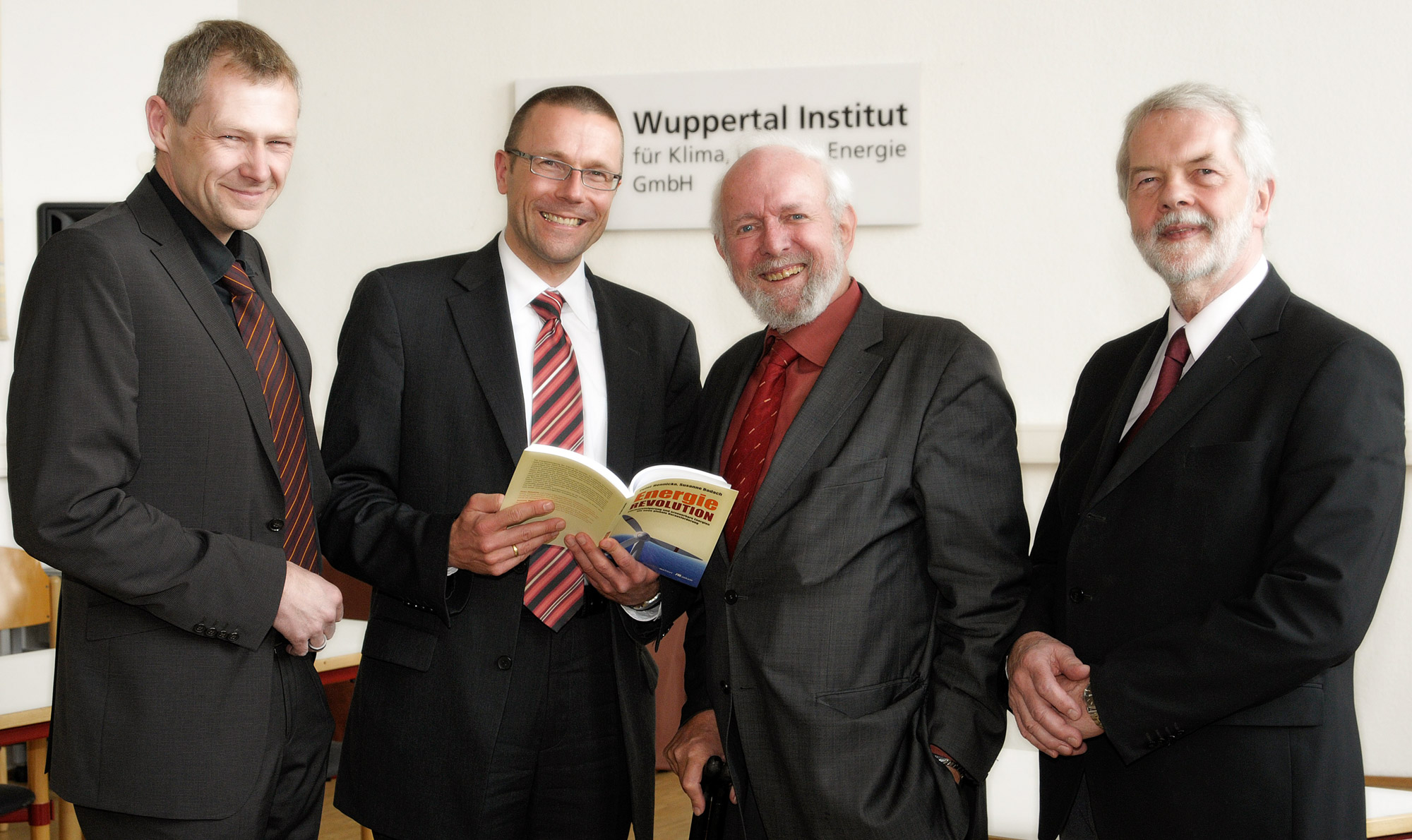
Well-positioned
Today, the Wuppertal Institute is one of the leading international Think Tanks and transformative research institutions counting about 300 employees at its two locations in Wuppertal and Berlin. After more than 20 years of leading the debate on a transition to sustainable energy and resource systems and developing corresponding concepts, much more concrete implementation issues have been on the Institute’s agenda for several years. This is not least due to the adoption of climate and environmental policy goals set by decision-makers in politics and the corporate world. The Wuppertal Institute looks at the holistic development perspectives of the systems – both in scientific analysis and in proposals for politics, business, civil society and science. With its strongly transformative scientific approach, the Institute sees itself as an enabler of utopias. The goal is to generate knowledge for change through interdisciplinary and practice-integrating research and thus contribute globally to an ecological, economic and social transformation.
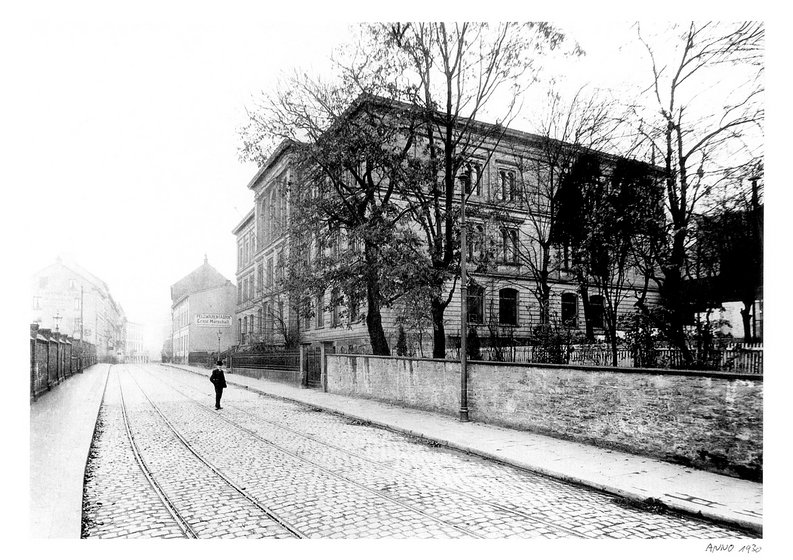
The Wuppertal Institute is located in the Dürer-Haus, built from 1857 to 1860 and under monumental protection since 1990. Its architecture shows the stylistic change from classicism towards a neo-renaissance italian style. 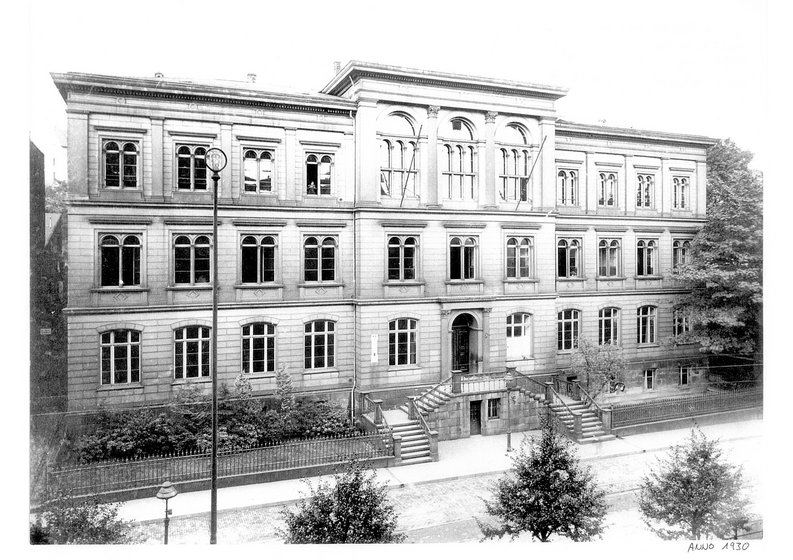
In the beginning, the Dürer-Haus had been an industrial school and home of the "höhere Webeschule", a weaving school which was one of the first educational establishments of the Rhineland area. During the industrialisation, Wuppertal was one of the main strongholds for the textile and clothing industry. 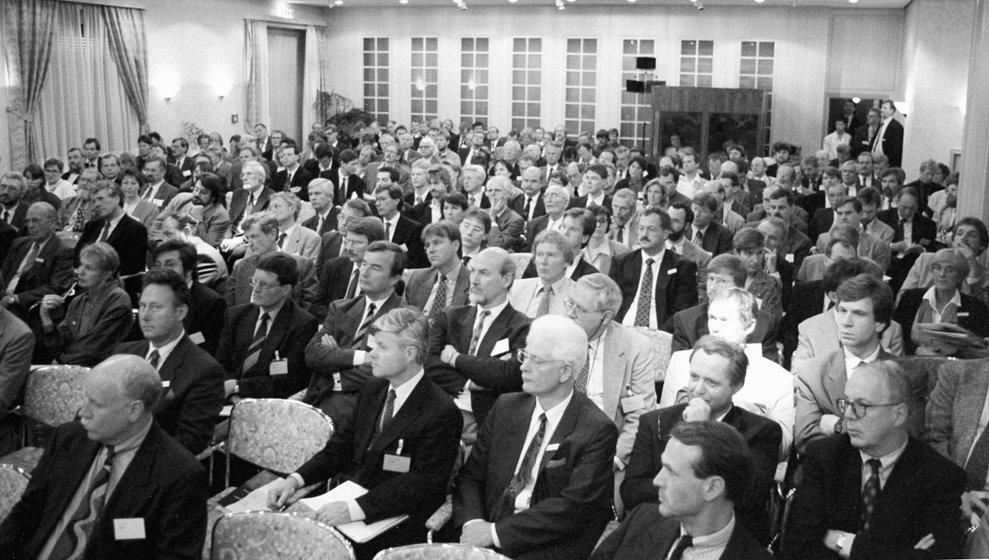
Inaugural conference of the Wuppertal Institute on 19/20 September 1991 on "Climate and Structural Change". 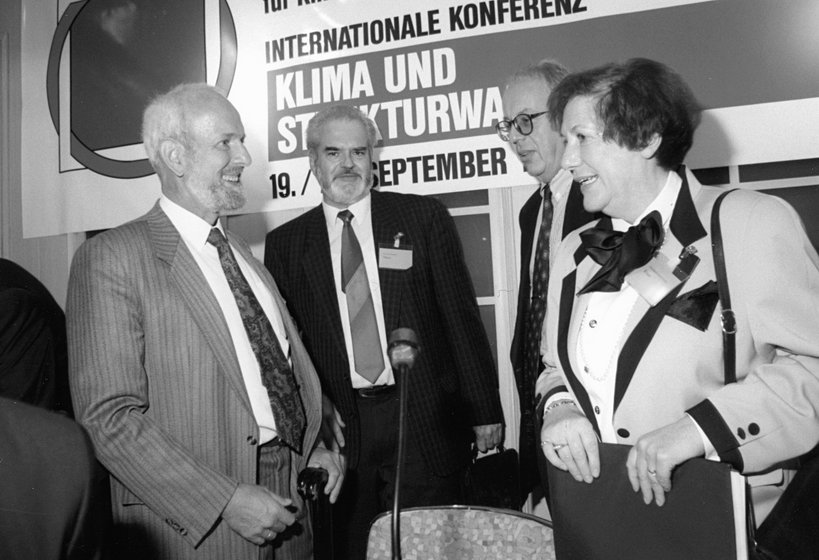
Ernst Ulrich von Weizsäcker discussing his vision with Siegfried Maser, Rector of the University of Wuppertal, Gert Kaiser, President of the Science Centre North Rhine-Westphalia and Ursula Kraus, mayor of Wuppertal. 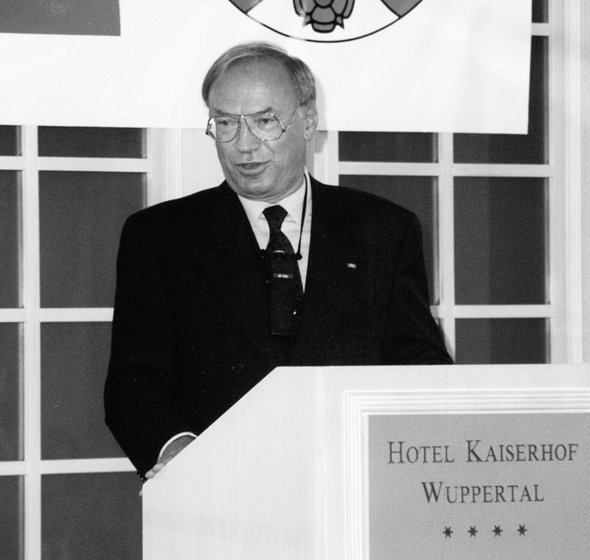
Günther Einert, Minister for Economic Affairs, Medium-Sized Enterprises and Technology of North Rhine-Westphalia gave the inaugural speech. 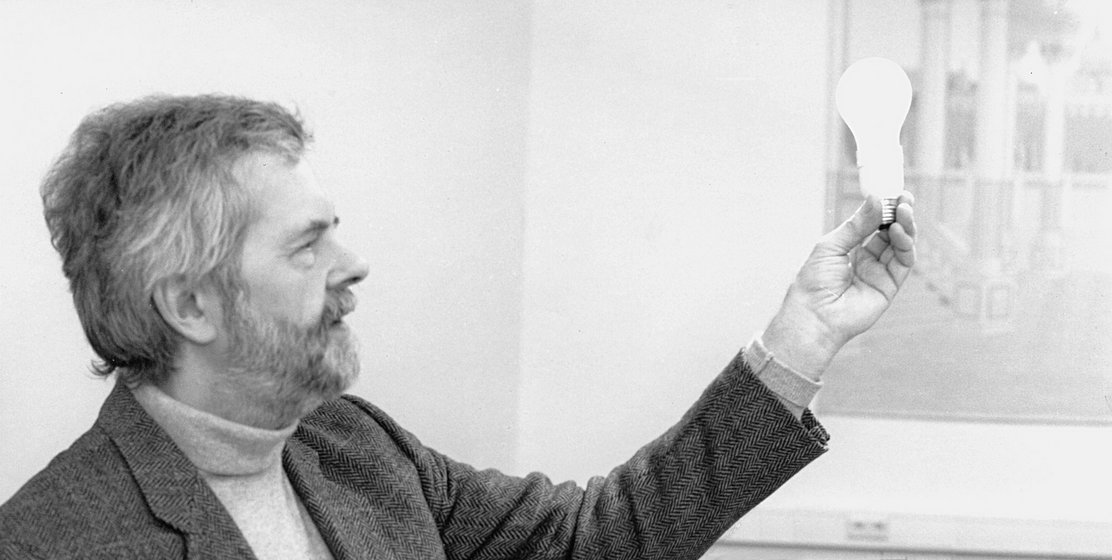
Peter Hennicke demonstrated the advantages of an energy-saving lamp as an integral part of least-cost planning to a group of visitors from France in 1997.
Mile-stones
The Wuppertal Institute's considerable effects can best be traced by looking at the milestones which were set by the scientist’s research findings and manifested in book publications. A time travel with books from Wuppertal.
The Wuppertal Institute's initial phase coincided with the preparations for the Earth Summit in Rio de Janeiro, which adopted the Rio Declaration on Environment and Development, launched Agenda 21 and passed the UN Framework Convention on Climate Change. Sustainable economic development called for far-sighted economic and societal decisions, for a turning away from a style of environmental policymaking which dealt exclusively with current problems on a case-by-case basis - and the envisaged Wuppertal Institute's research strategy was able to meet these challenges.
Founding President Ernst Ulrich von Weizsäcker had announced the end of the after-the-fact clean-up approach to environmental policy in his 1989 book Earth Politics (published in English in 1994). Instead, he advocated a resource strategy founded on reducing resource use by means of what he called an "efficiency revolution". The book also pointed the way towards new models of prosperity. The largest amounts of greenhouse gases are emitted in the energy and transport sectors. Implementing Professor von Weizsäcker's strategies in these two policy areas therefore remains the key to effective climate protection, and it is with this goal in view that the Wuppertal Institut's research departments were established.
Trailblazers such as Amory Lovins and Florentin Krause had demonstrated that immense energy efficiency potentials were still waiting to be tapped. During his time at the Öko-Institut - Institute for Applied Ecology, Peter Hennicke became aware of his American colleagues' work and pioneeringly decided to bring their approach to Germany. Moving to the Wuppertal Institute to head the Energy Division, he was able to intensify research in this area. Friedrich Schmidt-Bleek was one of the first officials at the German Federal Environment Agency to recognise that the environmental policies of the time paid too little attention to the major material flows. Though government policies towards reductions of toxic emissions were quite successful, the pressures on the finite material and energy resources and on nature remained undiminished.
When Friedrich Schmidt-Bleek joined the Wuppertal Institute as director of the Material Flows and Structural Change Division, he used the concept of the "ecological rucksack" to introduce his ideas into the scientific and political debates.
Headed by Rudolf Petersen, who had previously worked at the German Federal Environment Agency and in North Rhine-Westphalia's Ministry for Urban Development and Transport, the Transport Division integrated technical, social science and economic issues in its research projects and developed proposals for ecologically and socially sustainable mobility.
The Climate Policy Division under Swiss scientist Jill Jäger first tackled the basic research necessary for establishing national and international climate policies. Willy Bierter and Wolfgang Sachs coordinated the Working Group on New Models of Wealth which spanned divisions and was devoted foremost to studying sustainable lifestyles. The units for Systems Analysis and Simulation as well as Communication and Public Relations handled cross-sectional tasks. The visualisation lab, library and administration provided vital services and formed the Institute's organisational backbone. Due to successful acquisition of third-party funding, the total number of staff nearly tripled in the Institute's first ten years.
The Climate Policy Division was commissioned by the German Environment Ministry to draw up a report on options and measures for further developing the Climate Framework Convention for the first Conference of the Parties, which took place in Berlin in 1995. Political institutions and public sector agencies at all levels ranging from municipalities to the EU constituted the majority of the Institute's clients. A demand for consulting at international level also emerged, in industrialised, newly industrialising and developing countries. But the private sector's interest in the institute's work grew as well. Even in the early years, small and medium-sized enterprises commissioned projects, as did large corporations such as ABB, Audi, Deutsche Bahn AG, Hoechst, Preussen Elektra, Procter & Gamble, Porsche, RWE Energie, Telekom, Thyssen and others. The general public soon signalled a keen interest in the institute's research, to which we responded by offering lectures and publishing articles and books presenting the principles of the Institute's work and our visions for the future.
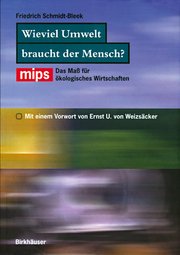
When Friedrich Schmidt-Bleek proposed his MIPS concept for gauging material input per service unit, he found a large audience. Illustrating his ideas with the image of "ecological rucksacks" which products and services "carry" when they arrive at the consumer, he also addressed this question in his 1994 book "The Fossil Makers". He has made a substantial and lasting contribution towards popularising the concepts of material flows and resource efficiency in the realms of science and politics.
How technology and society can meet the demands of sustainable mobility is a question Rudolf Petersen and Karl Otto Schallaböck addressed in their 1995 book "Mobilität für morgen" (Mobility for Tomorrow).
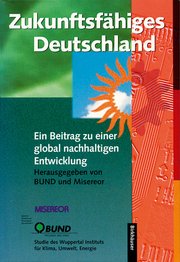
Following the Earth Summit in Rio de Janeiro, the implementation of Agenda 21 was high on the (environmental) policy agenda in many nations. The first attempts were very timid and showed the lack of experience in implementing the new leading principle called sustainable development. The 1995 report "Zukunftsfähiges Deutschland" (Sustainable Germany), commissioned by BUND and Misereor, was to remedy this: the Wuppertal Institute team, headed by Reinhard Loske and Raimund Bleischwitz, pioneered a new methodology. Beginning with an estimate of the Earth's carrying capacity, the "environmental space", this study developed leading principles to help Germans avoid overusing the environmental space to which we are "entitled". The principles are based on concepts such as efficiency and sufficiency.
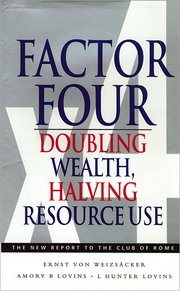
Efficiency is the cornerstone of the book "Factor Four - Doubling Wealth, Halving Resource Use" by Ernst Ulrich von Weizsäcker, Amory and Hunter Lovins (Rocky Mountain Institute, USA). They assembled fifty examples of successful products using half the usual amount of natural resources, including hypercars, "Passivhaus", superwindows, long-lasting furniture and a summer holiday in the Austrian Alps. The book was accepted as a report to the Club of Rome and was on the best-seller lists for several months. It has been translated into more than ten languages.
The Wuppertal Energy and Environment Competition is also based on the realisation that good examples are necessary to demonstrate the feasibility of concepts and to generate new ideas. Endowed for the first time in 1996 by Mr and Mrs Schuler, the prize is awarded every two years by a large circle of supporters. The Wuppertal Institute manages the competition, which has brought numerous ideas for products and services that help preserve natural resources to a wider public. The prize money has supported the inventors and pioneers in gaining market entry.
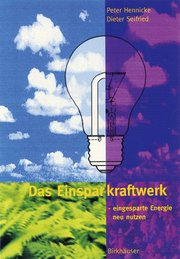
Since the institute's inception, a central mission of its work has been to translate scientific concepts into a politically and economically workable form and language. Peter Hennicke and other authors cut to the chase in 1995 in the discussion about the costs of energy-saving measures: Megawatts are competitive! In other words: it can be more lucrative for energy suppliers, and above all for their customers, to invest in energy-saving measures than in a new power station.
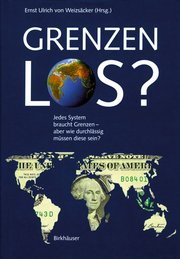
"In economics, tearing down barriers - the globalisation of markets - is a basic assumption in the theory of competition. The environment, which cannot compete according to the yardstick of economic performance, is in danger of losing out. Ethnic, linguistic and cultural diversity are threatened by extinction." These words are from the Wuppertal Institut’s invitation to the Science Centre's annual conference in late 1996. Its title, "Grenzen-los?" (Limit-less?), identified globalisation as the driving force behind many unsustainable developments, and at the same time reflected the growing international dimension of the Wuppertal Institut's work. Just as "sustainable development" is a global theme, the institute's research became more and more international in scope.
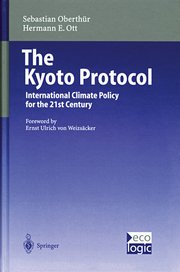
Agreed in 1997, the Kyoto Protocol took the global nature of the climate problem into account at least to some extent, even if it was ratified only many years later. The Kyoto Protocol was the first international agreement to limit greenhouse gas emissions. The Wuppertal Institut's Climate Policy Division was closely involved in setting this milestone in the international climate debate. Then headed by Edda Müller, the Division ran several projects concerned with developing policy instruments for climate protection. When the United States refused to ratify the protocol, Hermann E. Ott, later head of the Climate Division, in his book on the protocol outlined a European leading role in climate protection policy which can in fact be observed today.
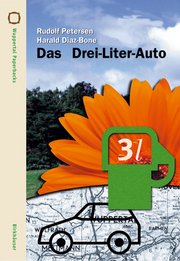
Analyses from the Wuppertal Institute have shown that the transport sector warrants a great deal of close attention in the sustainability discourse. The unbroken global growth of passenger car fleets, road haulage and above all air traffic threatens to more than cancel out efficiency gains and successes in other sectors. Clearly, we still have far to go. Sustainable mobility means avoiding or shifting environmentally detrimental transport in addition to using more efficient technology. Political action is necessary if technical vehicle improvements are to be realised which increase energy efficiency and diminish the emission of harmful substances. Another problem is that actors' assessments of alternative power trains, fuels and materials are by no means unanimous. In 1998, managers and developers from the automotive industry, politicians and representatives of environmental organisations convened at the Wuppertal Institute to discuss obstacles to and opportunities in producing energy-saving cars. The book "Das Drei-Liter-Auto" (The Three-Litre Car) by Rudolf Petersen and Harald Diaz-Bohne was based on this event and further analyses.
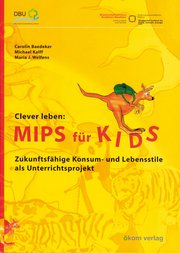
While technologies changed and developed, the spectrum of research on the environment and sustainability widened. In the early years the focus had been on leading principles, concepts and policy instruments; now the question of communicating these issues became ever more important. Friedrich Schmidt-Bleek's MIPS concept and the idea of dematerialisation, for instance, were incorporated into the "MIPS für KIDS" (MIPS for Kids) project, funded by the Deutsche Bundesstiftung Umwelt (German Federal Foundation for the Environment) in 1998/1999. This project developed an educational game in which children of various age groups can experience how manufacturing and using products affects natural resources. This project gave the educational aspect of sustainability a permanent place in the Institute's work; further examples include learning partnerships between schools and businesses established in the Project "KURS 21" as well as projects concerning professional and vocational qualification and continuing education.
The focus in sustainability research had shifted to take actors into account more, and the Wuppertal Institute responded in its scientific activities by founding the Working Group Eco-Efficiency and Sustainable Enterprises under Christa Liedtke's leadership. Since 1 January 2000, the economically, ecologically and socially sustainable development of industries, businesses and product lines has had a permanent place on the Institute's research agenda. The Working Group's projects emphasised close cooperation with day-to-day practice in businesses. Medium-sized enterprises are of particular interest, as they provide innovation and employment, but often lack the personnel resources for successful sustainability management. Nowadays, the institute also runs projects together with large concerns and corporations like McDonald’s who are interested in making their products and production processes fit for a sustainable future.
Sustainable economic activity means disclosing all economic and ecological costs. In the long run, the economy will continue to grow only if it learns to value the significance of nature for mankind's quality of life. Peter Bartelmus, a leading international representative of economic-quantitative sustainability analysis, has been heading the Material Flows and Structural Change Division since 1999. In his book "Unveiling Wealth - On Money, Quality of Life and Sustainability", he introduces concepts which are intended to secure the sustainability of growth and development, and which include ecological, social, economic and political factors.
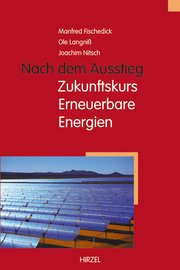
On 16 June 2000, the government's decision to opt out of nuclear energy radically changed the situation of energy policy in Germany. Further increases in energy consumption and a continually high use of fossil fuels, however, have serious consequences. The Wuppertal Institute developed comprehensive scenarios which fleshed out the roles that renewables could and must play in future, and how, coupled with greater energy efficiency, they could enable a turnaround in energy policy. These scenarios were used as a basis for various energy policies, underlining the fact that national as well as international policy consulting remains a significant part of the institute's remit.
In 2001, the Tokyo-based Takeda Foundation awarded Ernst Ulrich von Weizsäcker and Friedrich Schmidt-Bleek a prize worth one hundred million yen for their concepts "Factor Four", "MIPS" and "ecological rucksack", an expression of the institute's international recognition.
The event "10 Years Wuppertal Institute - Towards the Century of the Environment" in April 2001 was also the occasion to bid farewell to Ernst Ulrich von Weizsäcker, the Founding President of the institute. On becoming a member of the German parliament, the Bundestag, he had resigned from his post as President of the Wuppertal Institute in November 2000 and handed over the official duties to Peter Hennicke, then Vice President. Peter Hennicke had been heading the institute since that time until the end of January 2008, first as Acting President, then as President.
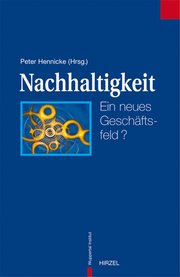
"Sustainability - A New Field for Business?" The annual conference of the NRW Science Centre in 2001, hosted by the Wuppertal Institut, asked this question. The hypothesis was that it is "natural barriers" which limit high-risk markets and simultaneously open up perspectives for processes and products compatible with nature. As these barriers make themselves felt, the new century becomes the Age of the Environment - despite or because of economic globalisation. Tomorrow's environmental risks, the conference participants agreed, are the starting point for strategies to avoid risks, for today's innovations and fields of business.
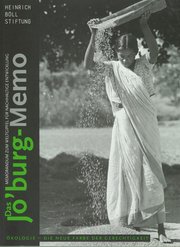
At the World Summit on Sustainable Development in Johannesburg in 2002, ten years after the Rio Conference, the international agreements on sustainable development were updated with new timetables and priorities for action. The World Summit also formulated an integrated concept of science and policy in its Plan of Implementation. This plan was implemented both methodologically and in terms of its content in the Wuppertal Institute's research programme in 2003, which reconceptualised the institute's research agenda.
Another important stimulus for rethinking the Institute's research structure came from the German advisory body on science policy, the Wissenschaftsrat. Invited in 2001 by the government of North Rhine-Westphalia to evaluate the NRW Science Centre, the Wissenschaftsrat presented its results to the public in May 2002 and recommended making future support of the Wuppertal Institute dependent upon a reconceptualisation of its activities. This triggered a debate about the relative weights of the practically oriented consulting and implementation of measures that had been the institute’s original mission, on the one hand, and in-depth research on the other. The end of this discussion was a successful process of reconceptualisation which was developed and implemented in just over a year in 2002/2003. The new structure and profile of research proved successful in practice.
In May 2004, the Wuppertal Institute opened an office in Berlin, headed by Hermann E. Ott, with a view to taking better advantage of the German capital's location in the context of the expanded Europe, being in closer contact with the institute's clients and taking part in the lively discourses in Berlin.
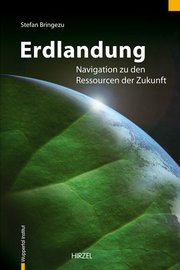
Practically every human activity involves the use of materials and basic commodities. Extraction, processing and each phase in a product's life entail substantial harm to the environment. Sustainable handling of resources - resource management as an area of policy ? is therefore an important task for the future. Stefan Bringezu has the readers of his book “Erdlandung - Navigation zu den Ressourcen der Zukunft” (Landing on Earth - Navigating to the Resources of the Future) imagine they have just landed on planet Earth. What is the carrying capacity of the planet in terms of resource use? Where does humankind interfere in natural material flows? Which additional material flows does humanity set in motion, and what are the consequences? These are the questions facing the new arrivals.
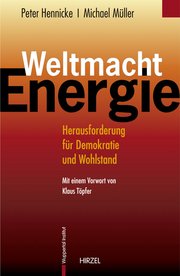
The book "Weltmacht Energie - Herausforderung für Demokratie und Wohlstand" (Energy, a World Power - a Challenge for Democracy and Prosperity) tackles one of the most important resources and its central role. Authors Peter Hennicke and Michael Müller discuss the risks of "business as usual" in energy policy, arguing that in a world growing together ever more rapidly, war is the inevitable result. Emphasising that energy supply is a public good which must be permanently available for all and distributed justly, they call for a more proactive government approach to the energy question. In their view, a dedicated civil society, creative engineers, a qualified workforce and responsible energy managers are necessary to establish the three pillars of the future: energy saving, greater efficiency and renewable energy.
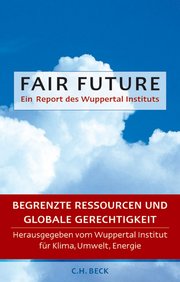
"Which kind of globalisation is sustainable?" That is the question addressed in an encompassing cross-sectional project established in 2002 to examine how the rise of the transnational economy can be reconciled with the goals of environmental compatibility and justice. In particular, sustainable energy and transport models for so-called developing countries have been studied against the background of trends in the more prosperous countries. The outcome is a book in which ten authors, led by Wolfgang Sachs and Tilman Santarius, bring together the results of research and discussions in the project. The environment provides the golden thread in "Fair Future - Begrenzte Ressourcen und globale Gerechtigkeit" (Fair Future - Limited Resources and Global Justice).
On 1 August 2005, the United Nations Environment Programme (UNEP) and the Wuppertal Institute jointly founded the Centre on Sustainable Consumption and Production (CSCP). As a member of the globally cooperating UNEP Centres, its mission is to develop practically oriented contributions to the ten-year Sustainable Consumption and Production programme which was agreed upon at the World Summit on Sustainable Development in Johannesburg in 2002.
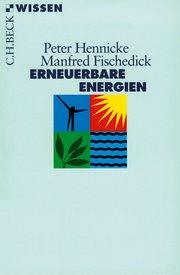
Setting targets is easy; the real challenge is achieving them through appropriate action. In our scientific consulting for politics and business, the Wuppertal Institute focuses on proposals taking the systematic long-term perspective – and ultimately shaping the transition to a solar economy. In January 2008 Peter Hennicke retired as President of the Wuppertal Institute, although as a committed scientist he continues to research tirelessly in the fields of energy and resource efficiency. Manfred Fischedick, Vice President and head of the Future Energy and Mobility Structures division, took over the President's responsibilities for more than two years until the very thorough search process came up with a replacement.
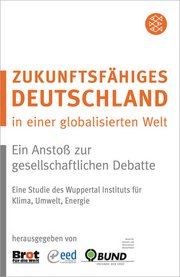
In 2008, Friends of the Earth Germany (BUND), Church Development Service (Evangelischer Entwicklungsdienst - EED) and Bread for the World launched a communication campaign to stimulate public debate about sustainable global development. In order to ensure that the initiative was thoroughly prepared, they asked the Wuppertal Institute to develop a book project providing the same kind of concise orientation as Greening the North more than ten years previously. The new study, "Zukunftsfähiges Deutschland in einer globalisierten Welt" (A Sustainable Germany in a Globalised World) appeared in autumn 2008. Its 30 authors, co-ordinated by editor Wolfgang Sachs, go far beyond a mere stock-taking of the issues of environment, globalisation and justice, using the latest quantitative data and innovative qualitative analyses to open up a sustainability discourse with society. Their efforts bore fruit, with numerous talks, discussions, workshops and seminars throughout the country. Even Germany's President Horst Köhler took up the study's call for a change of course and an epochal transition, saying this was needed in conjunction with a new industrial revolution to bring about the essential shift from fossil fuels to renewable forms of energy and massive improvements in energy and resource productivity.
"Knowledge to Act" is the motto of six teaching modules for secondary schools and adult education developed under the leadership of Christa Liedtke and Jola Welfens and designed by the institute's own VisLab. They deal with the big issues of sustainability in the context of the "Courage for Sustainability" initiative that seeks to promote a broad public discourse and strengthen responsibility and readiness to build a sustainable society and economy. This teaching tool for sustainability themes won an award in 2007/2008 as part of the UN Decade of Education for Sustainable Development.
The extraction and consumption of resources, the associated emissions and the problems of waste disposal are increasingly visible as political issues. In response, in 2007, the Federal Environment Ministry and the Federal Environment Agency commissioned a consortium of 31 teams led by the Wuppertal Institute to conduct research into material efficiency and resource conservation (MaRess).
That same year the new International Panel for Sustainable Resource Management set up by the United Nations Environment Programme (UNEP) met for the first time in Budapest. Twenty independent international experts were selected to bring together global scientific knowledge about the environmental effects of the use of renewable and non-renewable resources. The institute's Stefan Bringezu was appointed to the panel, which was initially co-chaired by our former President and founder Ernst Ulrich von Weizsäcker.
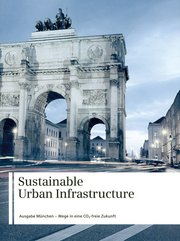
Since the beginning, the Wuppertal Institute has always worked towards a sustainable low-carbon society, and has prepared long-term energy scenarios designed to reduce German greenhouse gas emissions by 80 percent by 2050. These plans served as the basis for the German government's long-term energy study. But for their climate protection policies, local councils also need a strategy for working towards the long-term goal of a low-carbon society. A study for Munich commissioned by Siemens AG demonstrated how this could work in practice.
Long-term energy scenarios, like those developed by the Wuppertal Institute together with its scientific partners for the German Ministry for the Environment, also contribute to the Federal Government's decision after the nuclear accident at Fukushima to phase out nuclear power generation and start the German energy transition.
2011 is the anniversary year of the Wuppertal Institut. After 20 years of pioneering research work for a sustainable development the institute has reason enough to look back, to celebrate and to set out for new horizons. Highlight of the manifold anniversary activities is the congress "FactorW - Transition as a challenge". Participants from diverse fields of society and especially culture gave impulses and showing a lively picture of the targeted transition paths.
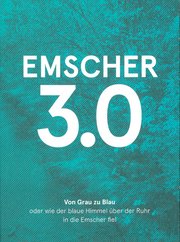
In January 2013, the Climate Protection Law NRW becomes effective in North Rhine-Westphalia. In contrast to all other German states, it contains concrete and ambitious greenhouse gas reduction targets. The law is complemented by a Climate Protection Plan, which specifies strategies and measures for achieving the targets. The Wuppertal Institute is a key scientific partner in the associated dialogue- and participation process. Various research projects in North Rhine-Westphalian cities, especially InnovationCity Bottrop in the Ruhr area, have made them become real world labs for transition. In those cities, researchers and partners from local businesses and municipal administration work hand in hand. Cooperation is not limited to technological innovation and development of infrastructure, because it critically depends on the involved people themselves, their social and cultural backgrounds, what kind of change is welcomed and further advanced. Therefore, social-ecological research gains importance and new disciplines, such as design for instance, are getting involved.
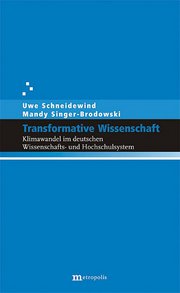
As a result, research designs change as well. Uwe Schneidewind, president of the Wuppertal Institute since 2010, integrates such a new transdisciplinary understanding of science into the conceptual framework of transition research. In 2011, the German Advisory Council on Global Change (WBGU) published ist flagship report "World in Transition - A Social Contract for Sustainability", which calls for a fundamental transition from our current fossil to a post-fossil society. It is claimed that it is the task of science to study these transformation processes and to support the transition through innovation in the relevant sectors.
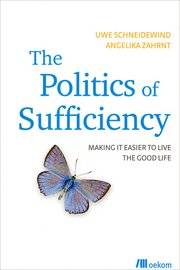
The quest for sustained prosperity, or the "Good Life", transcending unlimited economic growth becomes part of the public discourse in Germany, when an Enquete Commission of the German Parliament deals with this issue over the course of two and a half years. Uwe Schneidewind is advisory member of the Enquete. In the debate about sustainability it becomes increasingly clear that more efficient ways of using resources will not be enough, because so-called rebound effects offset efficiency gains in many cases. Therefore, the Wuppertal Institute analyses whether and how sufficiency strategies can be effective and politically useful in concrete fields of application such as the energy or the building sector.
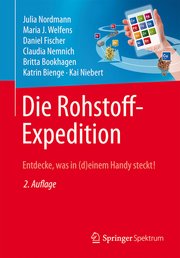
Despite a descreasing price of raw materials, resources become more and more the focus of media, education and science. All too vivid is the image of a planet whose resources are consumed by humankind more rapidly than they regrow. Simultaneously, though, the consumption behaviour changes: Smartphones become more important to teenagers than cars. The next online shopping order is just one click away. It becomes more and more important to provide information on how mobile phones are produced, what ecological impact a faster and faster replacement has and how reusable materials can best be recycled. "The resource expedition: Find out what’s inside of your mobile phone!" was initiated by the Federal Ministry for Education and Research in the science year 2012 – Project Earth.
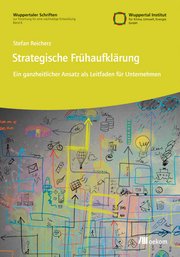
The sharing economy and digitalisation change both the economy and corporations worldwide. Services replace products, yet they also induce consumption further. The change in technologies, business models, law regulations or societal acceptance are just as much a challenge to corporations as climate chance, resource shortage or urbanisation. Doctorand Stefan Reicherz from Wuppertal recommends in his thesis "The strategic Foresight" to corportations in order to turn risks into chances.
![[Translate to Englisch:] Buchcover The Great Mindshift](/fileadmin/_processed_/2/9/csm_Goepel_Great_Mindshift_86fb4b785c.jpg)
Sustainable development is the 21st Century's wicked problem. After 40 years into this agenda have reversed only few unsustainable trends, we hear the call for a paradigm shift, transformation, radical change or system innovations in order to finally change course. But what does this actually mean? And how do we put it into practice? Maja Göpel's book "The Great Mindshift" describes the path ahead. It combines system transformation research with political economy and change leadership insights when discussing the need for a great mindshift in how human wellbeing, economic prosperity and healthy ecosystems are understood if the Great Transformations ahead are to lead to more sustainability.
![[Translate to Englisch:] Buchcover Transformative Wirtschaftswissenschaft](/fileadmin/_processed_/b/2/csm_Schneidewind_Wirtschaftswissenschaft_5527059749.jpg)
From the very beginning, modern economic sciences have not only observed and described social processes but have also catalysed and influenced them. In doing so, they have paved the way for a development which, in addition to undisputed success, has led to ecological destruction, social disruption, and recurring economic crises. In their book "Transformative Science for Sustainability Transition", the editors, including Uwe Schneidewind, show that a transformative economic science is needed more than ever before. Its main objective should be to analyse and help to improve the conditions and possibilities of sustainable development of the economy and society.
![[Translate to Englisch:] Buchcover Ökoroutine](/fileadmin/_processed_/8/6/csm_Kopatz_Oekoroutine_56b59881bd.jpg)
This book by Michael Kopatz puts an end to environmental moral appeals and shows that we can live responsibly without having to deal with climate change or factory farming on a daily basis. We simply make "eco" a routine! What seems impossible is conceptually very simple and already widely anchored in everyday life: waste separation, energy-saving lamps, efficient houses - everything has long been there and accepted. “Ecoroutine” provides a concept for new, innovative standards and regulations, for example for road construction and speed limits, pesticides, and fertilizers. If devices last longer and animal farming gradually becomes species-appropriate - which consumer would complain about that? Ecoroutine gives many policy proposals for all areas of life so that today's niches will soon become tomorrow's normality.
![[Translate to Englisch:] Buchcover Die Große Transformation](/fileadmin/_processed_/4/e/csm_Schneidewind_Grosse_Transformation_504d2be091.jpg)
Trump, populism, luxury and consumption mania, waste of resources - the ecological transformation is in a crisis. Can the transformation to a more social and ecological world still succeed? Yes, say Uwe Schneidewind and the team of the Wuppertal Institute in their book "The Great Transformation – An Introduction to the Art of Social Change", which was published in August 2018. What it takes is "Zukunftskunst". This refers to the ability to combine cultural change, clever politics, new business practices, and innovative technologies. In this way, a turnaround in energy and mobility, a turnaround in nutrition, or sustainable change in our cities will become possible. The book encourages politicians, civil society, companies, and each and every one of us to become "Zukunftskünstler".
![[Translate to Englisch:] Buchcover Die Energiewende in Europa](/fileadmin/_processed_/d/f/csm_Hennicke_Energiewende_b2afd0acb7.jpg)
Europe needs a new vision of progress. An energy turnaround has this potential. It can enhance the "European idea" by adding future-oriented value. The goal is clear: a Europe without fossil and nuclear energy by 2050! This is not a utopia. Studies and resolutions of the EU and some member states prove that this vision is feasible and has many advantages: more jobs, more security of supply, fewer premature deaths from air pollution, reduction of resource conflicts, decreasing energy costs. New "green" lead markets for renewable energies and resource efficiency are emerging. A European energy turnaround requires an alliance, ideally galvanised by the neighbours France and Germany. Hopes are pinned on Germany as a driver of the nuclear and coal phase-out. But adopting "revolutionary goals" is not enough: Germany and Europe are waiting to finally implement them. This book by Peter Hennicke, Jana Rasch, Judith Schröder, and Daniel Lorberg published in spring 2019 shows which concrete steps will advance this vision of progress.
![[Translate to Englisch:] Buchcover Schluss mit der Ökomoral](/fileadmin/_processed_/d/b/csm_Kopatz_Oekomoral_d398a71134.jpg)
"Political commitment is more important than private consumption," says Michael Kopatz. Moral appeals only make us feel bad, but they don't change our routine. Just how successful protest can be is currently demonstrated by the "Fridays for Future" movement, which fights for new structures appropriate to the situation rather than for individual behavioural changes. In his book "End of Ecomorality" published in October 2019, Kopatz calls on politicians to live up to their responsibility and set intelligent standards and regulations – so that "eco" becomes routine and moral admonishments disappear.
![[Translate to Englisch:] Manfred Fischedick](/fileadmin/redaktion/images_hq/misc/Fischedick_Manfred_wissGF.jpg)
In the course of 2019, 13 new clearly profiled Research Units within the four Divisions of the Institute entered into operation. The Wuppertal Institute is facing the challenges of the coming years with this strong new research structure and a dual scientific leadership. The strategic development of the Wuppertal Institute's organisational structure was successfully implemented in 2019. The Institute took a further step towards strengthening the management level by expanding the Institute's scientific management. On 1 January 2020, Prof. Dr. Manfred Fischedick, former Vice-President of the Wuppertal Institute, took over the scientific leadership of the Institute together with Prof. Dr. Uwe Schneidewind. This made official what had already been the Institute's practice for ten years: the former Vice-President Prof. Dr. Manfred Fischedick became an equal Scientific Managing Director.
![[Translate to Englisch:] Uwe Schneidewind](/fileadmin/_processed_/7/b/csm_Schneidewind_Uwe_c_Etges_4734253942.jpg)
On 30 April 2020 Prof. Dr. Uwe Schneidewind left the Wuppertal Institute after more than ten years. He had headed the Institute since 1 March 2010. During his tenure the Wuppertal Institute saw the successful evaluations by the Science Council, the shaping of the debates on transformative science and the innovative work in real-world laboratories. In the book "The Great Transformation" the major transformation challenges were elaborated and conceptually framed, which contributed significantly to the Institute's external positioning as one of the leading transformation think tanks.
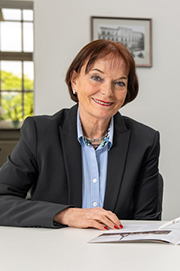
At the end of 2020, Brigitte Mutert-Breidbach retired after being with the Wuppertal Institute for 22 years. Since 1998 she had been responsible for the economic achievements of the Institute as Administrative Managing Director. She laid the foundation for the Institute's success over the past two decades with her long-sighted management of the commercial area.
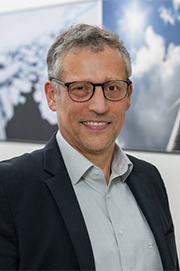
On January 1, 2021, Michael Dedek took over the Administrative Management of the Wuppertal Institute, succeeding Brigitte Mutert-Breidbach as Administrative Managing Director. He heads the Wuppertal Institute together with the Scientific Managing Director Prof. Dr. Manfred Fischedick.
